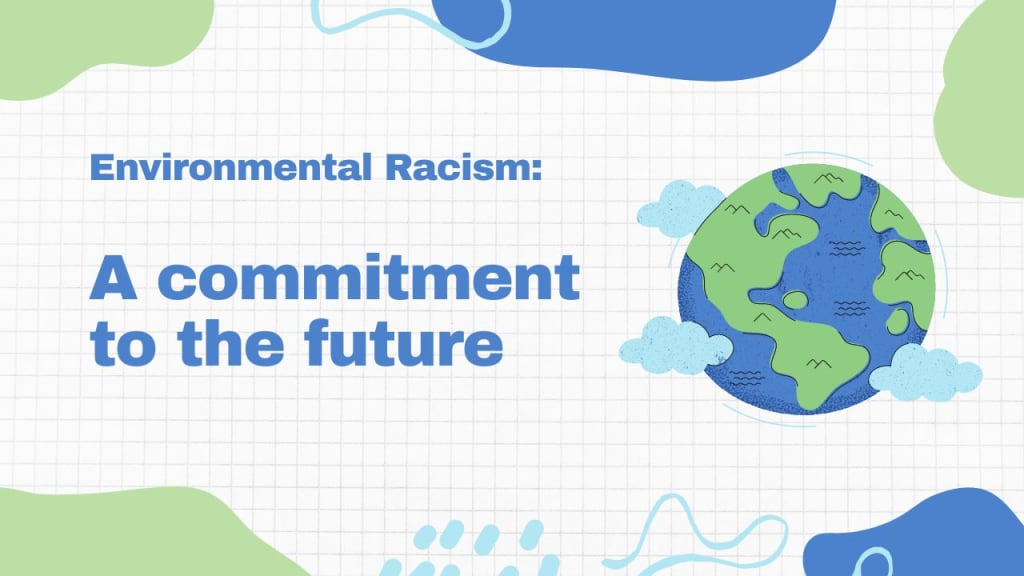Unveiling Environmental Racism: Communities at Risk
Racism in our Communities

Unveiling Environmental Racism: Communities at Risk
Introduction:
Environmental racism is an alarming reality, it is a systemic issue that disproportionately impacts marginalized communities, exacerbating social and environmental inequalities. Certain communities, primarily those of low-income, indigenous, and minority backgrounds, bear the brunt of environmental hazards, pollution, and toxic waste and degraded environments. In this article, we will shed light on the issue of environmental racism, highlighting its impacts, causes, and viral keywords that resonate with readers. We aim to ignite discussions and raise awareness about the urgent need to address environmental injustice and protect vulnerable communities.
1. Environmental Inequality: The Disproportionate Burden
Environmental racism refers to the systemic discrimination that exposes marginalized communities to higher levels of environmental hazards and pollution. These communities often lack the political power or resources to protect themselves from the adverse effects, leading to profound health disparities and reduced quality of life.
2. Historical Context: Tracing the Roots
The roots of environmental racism can be traced back to historical practices of discriminatory land-use policies, redlining, and industrial zoning that disproportionately placed polluting facilities near marginalized communities. Understanding this historical context is essential to dismantling systemic inequalities and promoting environmental justice.
3. Toxic Hotspots: Living on the Frontlines
Marginalized communities frequently find themselves living near hazardous sites such as landfills, industrial plants, and toxic waste facilities. These "toxic hotspots" expose residents to higher rates of pollution-related health issues, including respiratory problems, cancer, and developmental disorders.
4. Access to Resources: Environmental Privilege
Environmental racism not only denies marginalized communities the right to a clean and healthy environment but also perpetuates resource disparities. Limited access to clean air, clean water, green spaces, and sustainable infrastructure further exacerbates socioeconomic inequalities and restricts opportunities for community development. Access to clean water and sanitation is a basic human right, yet environmental racism deprives marginalized communities of these essential resources. On a global scale, we see contaminated water sources and inadequate sanitation infrastructure disproportionately impact communities of color and low-income neighborhoods. It will address the long-term health implications and the need for equitable water management.
5. Climate Change: Amplifying Injustices
Climate change acts as a multiplier of existing environmental injustices. Vulnerable communities, often those impacted by environmental racism, face the brunt of climate-related disasters, including hurricanes, heatwaves, and flooding. Addressing climate justice is crucial to ensure the protection and resilience of marginalized communities.
6. Grassroots Movements: Voices for Change
Communities affected by environmental racism are at the forefront of grassroots movements advocating for environmental justice. These movements seek to empower communities, challenge polluting industries, demand policy changes, and promote sustainable practices. Viral keywords like "environmental justice," "community activism," and "sustainable living" amplify the voices and actions of these movements.
7. Policy Reform: Striving for Equity
Policy reform is essential to address environmental racism effectively. Governments and regulatory bodies must enact stricter regulations, ensure transparent decision-making processes, and incorporate community input in environmental policies. Furthermore, supporting community-led initiatives and investing in sustainable infrastructure can help promote equity and mitigate the impacts of environmental racism.
Conclusion:
Environmental racism is an urgent issue that demands attention and action. The disproportionate burden of environmental hazards on marginalized communities perpetuates social, economic, and health disparities. By incorporating viral keywords such as "environmental racism," "environmental justice," and "community empowerment," we can raise awareness, drive discussions, and inspire change. It is imperative that we stand in solidarity with affected communities, advocate for policy reform, and promote sustainable practices to address environmental racism and ensure a just and equitable future for all. Let us work together to unveil and dismantle the systemic barriers that put communities at risk and create a world where environmental justice is a fundamental right.
About the Creator
Dwight Wilson
Hi! My name is Dwight Wilson from the wonderful Island of Jamaica. I am a humanitarian who seeks to make the world a better place one day at a time. I love to write on interesting topics and I wish to allow persons to enjoy my writings.





Comments
There are no comments for this story
Be the first to respond and start the conversation.